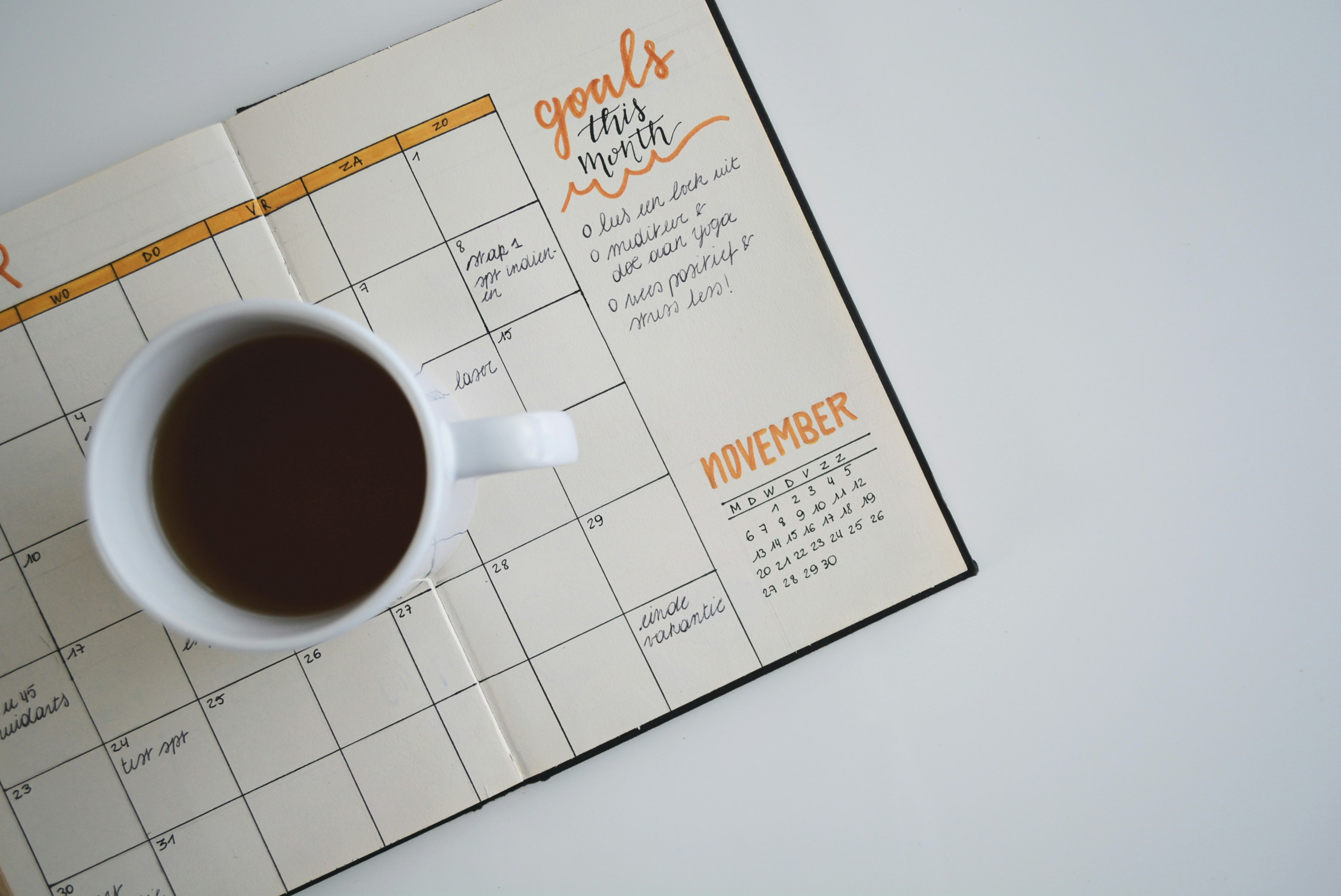Table of Contents
- 1. Give yourself a bedtime
- 2. Go for a walk at lunch
- 3. Get up from your desk and have a conversation
- 4. Don’t read for too long at a time
- 5. Avoid restless nights
- 6. Keep your mind active
- 7. Drink plenty of fluids
- 8. Assess your work-life balance
- 9. Check with your doctor
- 10. Take the quick nap at lunch (if working from home)
- What NOT to do when feeling tired at work
- What’s the best approach to tackling workplace tiredness?
Property
Sleep is a blissful and necessary part of existence. It’s the simple thing that helps our bodies tick, our minds stay clear and our motivation excel. Life, however, has an irritating tendency to get in the way of our most peaceful nights. And our work often suffers because of it.
Being exhausted when sitting at your desk or while trying to pay attention during an important meeting can be incredibly challenging. When your eyes are growing heavier by the minute and your head bleary, it can feel like there’s nothing more you’d rather do than drift off to sleep and partake in a tranquil power nap. Yet, in most cases, a nap during work hours is frowned upon or simply regarded as ‘unprofessional’. Who made these rules?
Regardless, there is no questioning the effects insufficient sleep can have on your work-life or the importance of it, and workers everywhere are acquainted with that overbearing urge to fall asleep on the job. Perhaps it’s triggered by the kids keeping you up all night, or stress-induced nightmares waking you at 3:00 am. Or maybe it was that late-night coffee or giving into a TV binge so you can find out the truth behind the gruelling crime or if lead characters end up together.
Whatever the culprit, it’s reassuring to know that feeling tired at work is something that you can face head-on or simply avoid in the first place.

Here are a few tips to help you prevent or at least manage your sleepiest workdays:
1. Give yourself a bedtime
It’s not only babies and children who benefit from bedtimes. As adults, we thrive on healthy routines and sleeping schedules and we grow accustomed to a pattern of sleep. So, figure out how much sleep you need in a night to feel revitalised in the day and plan your bedtime and wake-up time around that.
Everyone is different, some people need 8 hours, while others function just fine on 6, so do what works for you and try your best to maintain it. Also, if you know it takes you a little longer to fall asleep, go to bed an hour earlier or start winding down sooner. Once you have a bedtime routine in place, adhering to it daily will become natural.
2. Go for a walk at lunch
Lunch is obviously meant for eating, but it’s also meant to give you a necessary break. Use it to its full advantage and go for a walk or a short stroll outside. If you’re feeling extra fatigued in the morning, a walk at lunch will do wonders for your afternoon. The sun and fresh air will remind you that it’s daytime, making you feel a bit more rejuvenated.
If you’re struggling for time midday, try eating lunch away from your desk for 15 or 20-minutes, somewhere like a nearby park or in the kitchen amongst co-workers can be great ways to stimulate your brain.
3. Get up from your desk and have a conversation
If you’re working from the office, make a point of taking regular breaks and having a conversation with colleagues, work-related or not. Or, if you’re working from home, have regular conversations with a roommate or family member, and if no one is around give someone a call for a brief chat. Speaking to someone will help to take the focus away from how tired you feel.
4. Don’t read for too long at a time
If your job entails a lot of reading or staring at spreadsheets, make sure to take regular breaks in between or change up the tasks you’re doing regularly. Reading often induces tiredness, that’s why many people read a book or magazine before bed. So, be aware of it when working, as this can make you extra eager to nap at your desk.
5. Avoid restless nights
Do what you can to endure a quiet sleep throughout the night. Comforts like keeping your TV on, sleeping on the sofa or an uncomfortable bed and drinking too much liquid in the evening, can all impact your duration and quality of sleep. Therefore, if you’re struggling with being tired at work, investigate your sleeping habits and sleeping arrangements, and make any essential tweaks.

6. Keep your mind active
Things like walks and exercise keep our minds active and will encourage energy throughout the day. Succumbing to laziness or being idle does the opposite, it provokes sleepiness. Make an effort to change your environment.
Here are a few tips:
- Walk the dog – if working from home
- Do yoga or exercise during lunch
- Play a game or draw during your break
- Work on something different for a while
- Call a colleague for a chat
- Listen to music or a podcast while you work
7. Drink plenty of fluids
Drinking fluids regularly will help to keep you more alert. Drink plenty of water throughout the day or soak up the appropriate level of caffeine. We all know that coffee and tea are great for this purpose, but don’t overdo it or else you’ll feel the inevitable crash.
For an extra perk, splash some water on your face, it’s an old-school tactic, but it does help.
8. Assess your work-life balance
How we handle our time, at home and at work, is an essential game to juggle. Forsaking vacation time, working too much overtime or leaving little hours in the day for rest, friends, family, and personal hobbies will leave the average worker depleted. So, before you blame your workday sleepiness on something else, check in with your overall work-life balance and ask yourself – am I giving my personal life enough attention?
9. Check with your doctor
If fatigue is persistent, regardless of a healthy sleeping routine, it doesn’t hurt to check with your doctor to find out if there’s an underlying cause. It could be anything from a lack of iron, an uplift of anxiety or Chronic Fatigue Syndrome. Or it could be that your body is adjusting to stress and the pressures of work. Either way, it doesn’t hurt to examine it a little further and get some guidance from a medical professional.
10. Take the quick nap at lunch (if working from home)
If you’re based at home, taking a nap is significantly more acceptable and is arguably one of the best benefits of a work from home lifestyle. If your schedule allows, fit in a 20-minute nap in your cosy bed during lunch. Any longer than that can cause further drowsiness, so don’t forget to set an alarm.

What NOT to do when feeling tired at work
Apart from what you should do to stay awake during work hours, be aware of what you shouldn’t do as well. Some examples of this can be:
- Blaming yourself
- Pushing yourself too far
- Working more hours than you need to
- Going into work when you’re feeling ill
- Forgetting to eat significant meals
- Staying in one place too long
- Overdosing on sugar and caffeine
All these bad habits will make you increasingly tired and significantly more stressed. Finding healthier alternatives is certainly the way to go.
What’s the best approach to tackling workplace tiredness?
While it’s evident the Spaniards’ siesta way of life is ideal and for most, preferable, it’s unfortunately not feasible for everyone. How annoying!
So, the next time you feel like you’ve taken a sleeping pill during work hours or inhaled a pile of lavender, revaluate your sleeping pattern and attempt some of these useful tactics. What can you change? What will help you feel more energized?
The answer in three simple steps - stimulate your brain, move your body and rejig your routine.
This approach will reduce that annoying urge to faceplant on your desk and will get you through any remaining work hours, unscathed and if situated in the office, siesta-free.





